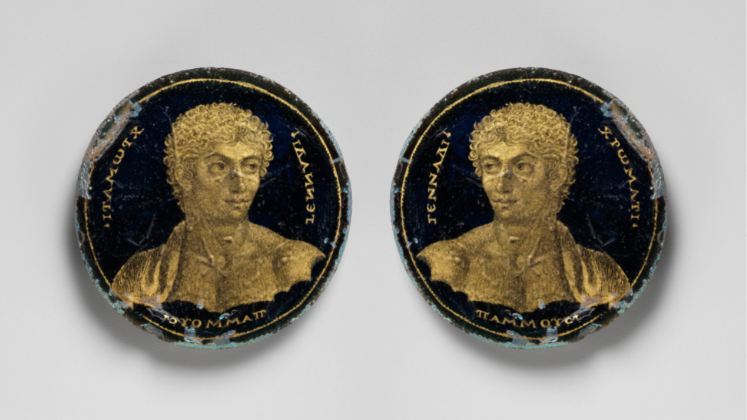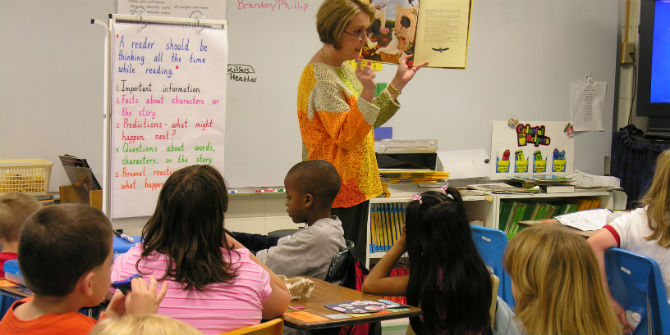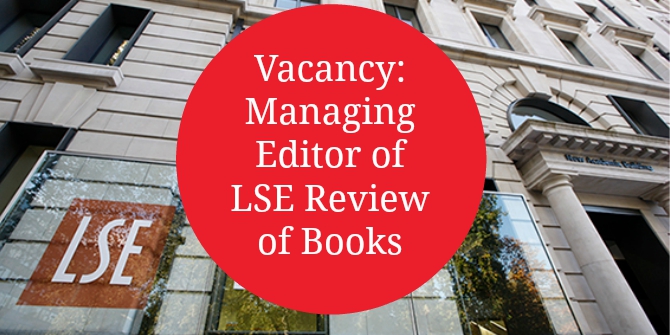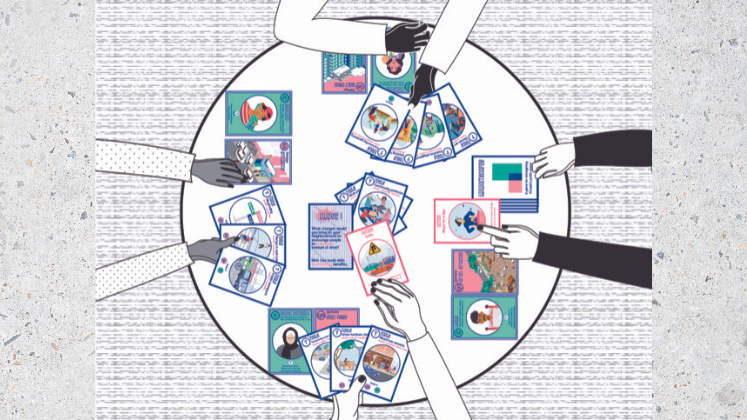 Non-academic research users are often powerless in the decision-making processes for how research is communicated. Jacqueline Priego-Hernandez shares lessons from a knowledge exchange toolkit which aims to address this imbalance through participatory workshops. Drawing on a Freirean approach to learning, interactions between participants and researchers are seen as a key objective in itself. She argues that plans for impact need to be devised for the benefits to be shared, so that research end-user engagement can go beyond the limited number of participants in a dissemination event.
Non-academic research users are often powerless in the decision-making processes for how research is communicated. Jacqueline Priego-Hernandez shares lessons from a knowledge exchange toolkit which aims to address this imbalance through participatory workshops. Drawing on a Freirean approach to learning, interactions between participants and researchers are seen as a key objective in itself. She argues that plans for impact need to be devised for the benefits to be shared, so that research end-user engagement can go beyond the limited number of participants in a dissemination event.
Universities are increasingly preoccupied with responding to the Impact Agenda set out by HEFCE. In this context, attention is being paid to many different groups of non-academic users with the objective of ‘making a difference’ beyond academia. The LSE’s Underground Sociabilities research project focuses on the work of grassroots organisations in Brazilian favelas and the transformative effect they have on these communities. In this endeavour, engagement with non-academics was fostered from the very inception of the research, in a collaborative partnership that relied on ‘dialogue seminars’ to discuss research steps and preliminary results. After the research results were published in book format, the next step towards enhancing impact was ‘getting the research out there’ through a range of outlets.
One of our strategies, participatory workshops, aims at sharing and discussing research findings with non-academic users who, on their own, could be considered ‘powerless’ in decision-making processes. We believe that direct intervention with these groups, specifically with those who live the realities we investigated, is of social value, and, if executed in the context of a wider knowledge exchange strategy, can foster positive social impact.
In light of this, we considered the best strategy would be to engage participants from our research (i.e. personnel from participating organisations and community members) in one of our knowledge exchange events. To this end, we created a toolkit in which our results were expressed in non-academic language likely to engage a wide range of participants. In this document, we outlined activities that explained academic concepts and findings in everyday language, focused on discussing such concepts, and sought to identify, in the discussion with users, actionable recommendations beyond those outlined in the book.
Knowledge exchange strategy: Participatory workshops
When searching for literature to ‘translate’ our findings into a participatory format, we found that there is little material available on how to foster knowledge exchange through participatory approaches. The majority of the literature focuses on participatory research methodology to generate data. A close concept is that of communicative validation, a research quality assurance measure whereby researchers check the relevance of their results against the views of research participants. We drew on and adapted these approaches for our dissemination strategy.
In an attempt to help guide the production of similar materials and events, here are the three iterative steps we performed when producing the toolkit:
- Defining the main concepts of the research: Since the research findings have been published already, the main concepts were easy to identify. However, the number of concepts or notions to be worked with will greatly depend on the target audience and resources (see point 3).
- Identifying the general objectives of the knowledge exchange event and the particular goals of each activity within it: In our case, we had the general objectives of a) empowering end users with the main findings about the effectiveness of their working model and b) building capacity by engaging participants with academic concepts to describe what they do on a daily basis. At the level of each specific activity, we had to carefully strike a balance between ‘transferring’ the knowledge from our research and fostering exchange in the form of feedback from participants.
- Negotiating the depth and range of activities around the time and resources available: In our case, the toolkit was designed with possibilities to adapt the activities so that more or less depth could be added to the analysis.
The toolkit is thus the substance of the workshops. However, the event where this material was used to communicate our findings was as important as the material itself. While our research expertise guided the production of the toolkit, our event was designed in line with both a Freirean approach to learning and with realist models of knowledge exchange, in which knowledge comes from a range of sources. Hence, interaction between participants and researchers was one of the objectives of the event.
In terms of logistics, our project had the advantage of having engaged with gatekeepers during the research stage, so it was relatively easy to capitalise on these networks to get the attention and interest of targeted potential participants.
 From knowledge exchange to impact
From knowledge exchange to impact
Many would contend that the workshop strategy discussed here mainly serves the purposes of dissemination. In addition, recent research on the ‘lasting changes’ post-workshop points to a complex set of structures that work against the incorporation of research findings in everyday practices. In order to go beyond dissemination, the knowledge exchange strategy must carefully plan and articulate each of its components both as outputs (i.e. production; running the workshops in this case) and as changes in the long term. Here, at least two points must be considered.
The first one is impact sustainability across time and participants, that is, escalating the workshop component of the strategy. Plans need to be devised for the benefits to be shared among other groups, so that research end-user engagement can go beyond the limited number of participants in a dissemination event. In our case, the workshop placed great emphasis on enabling participants to extend the knowledge they exchanged with us to their peers in the community. To aid in this process, adjusted materials from the workshop will be available online, ensuring that prompts are also freely accessible. In addition, a follow-up email list was set up, so that reminders and important information on dissemination activities can be sent in the local language.
The second consideration is that this ‘layer’ of knowledge exchange needs to be complemented with other streams of end-user engagement and with knowledge exchange with other stakeholders. Therefore, in our case, another strategy to engage end-users, non-specialised audiences and academics is blogging through the Favelas@LSE Blog. Our project also contemplates dialogue events engaging policy-makers and other actors at the level of policy decision-making, from both the UK and Brazil.
Further resources
The following are general workshop guides focused on learning and training. Their ideas and exercises can be adapted when translating core concepts into actionable activities and/or recommendations.
- Pretty, J. N., Guijt, I., Thopson, J., & Scoones, I. (1995). Participatory learning and action: a trainer’s guide. London: IIED. (Free download; also available in Spanish).
- Sims, N. H. (2006). How to run a great workshop: the complete guide to designing and running brilliant workshops and meetings. Harlow: Pearson.
The resource below is a how-to guide on designing knowledge exchange undertakings.
- Kumar, S., & Leonard, A. (2012). The art of knowledge exchange: a results-focused planning guide for development practitioners. World Bank Institute/Knowledge Exchange. (Free download).
All images courtesy of Jacqueline Priego-Hernandez
Note: This article gives the views of the authors, and not the position of the Impact of Social Science blog, nor of the London School of Economics. Please review our Comments Policy if you have any concerns on posting a comment below.
Jacqueline Priego-Hernandez is a research officer with the knowledge exchange project ‘Communicating bottom-up social development: A dialogue between multiple stakeholders in the UK and Brazil’, at the LSE Department of Social Psychology. She is the editor of the Favelas@LSE Blog and tweets as @jacqpriego.









5 Comments